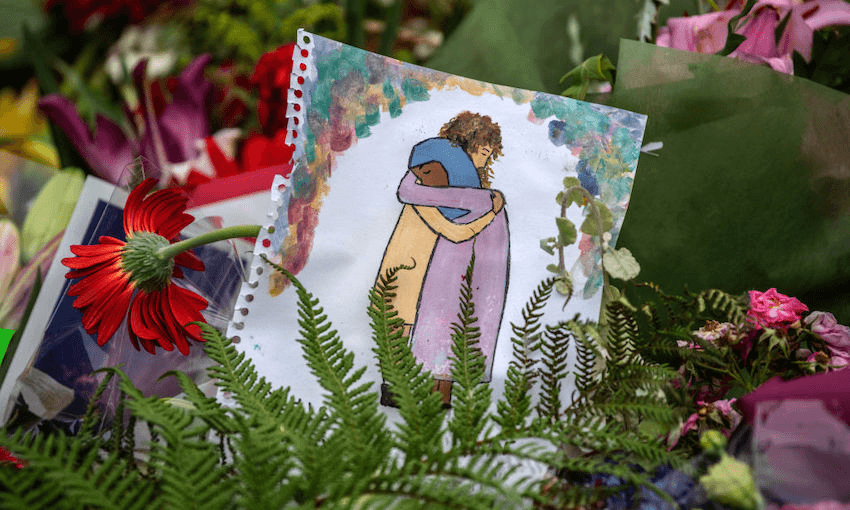I’m asking New Zealand not to forget, and not to brush this aside, writes Anjum Rahman.
It’s been a long two years since our world was torn apart. So often I think about the countries that live with these kinds of events on a weekly basis, and how they might deal with the trauma, the constant fear and not knowing when the next attack might happen. I can’t even imagine what it’s like to be present, to lose someone, in a deliberate attack with such horrific consequences.
Yet in our country, it’s striking how quickly some people want to forget. There are a few who express the feeling that we’ve heard about it enough, why do we have to go through this again? Over the last couple of weeks, as we continue to advocate for our community and push for the support needed, it’s hard to avoid the hate-filled social media commentariat.
The latest attack lines are that we’re too “whingy” and “whiny” – words that are rarely used for men, but are used by people who would be the first to tell us that Muslim women are treated like second class citizens in Muslim communities. We have the usual requests to go back to our own country, told that we should be grateful to even be here. They gleefully tell us we wouldn’t have a voice in our own country (yeah, that would be Aotearoa) while complaining loudly when we use our voice here.
I know the toxic social media space is not representative of the country. There have been many people who have shown their support in various ways. The everyday kindness is what keeps any community going, especially one that is still dealing with such an awful event.
It’s an event that will necessarily have long-term and ongoing consequences, both in terms of mental, physical and economic wellbeing. Putting it behind us would be easier if there weren’t ongoing threats, and fears for our safety. As well as the everyday acts of discrimination that have never stopped.
Back in 2015, when the Islamic Women’s Council of New Zealand wrote to the government detailing the issues faced in our community, the root cause of those issues was the negative perception of Muslims. This came through media, online and offline commentary, as well as deliberate misinformation. It was affecting Muslim women’s ability to gain employment or rental properties, to be taken seriously by health providers and to go about their daily business in public spaces.
As a response to this, and to set our own narrative about the wonderful Muslim women in our community, Aliya Danzeisen started a project to create a resource for secondary schools. Work on the project had started prior to the attacks but had to be put on hold as the organisation struggled under the weight of supporting and advocating for our communities after the attacks.
Finally this year, the resource is ready, and it features amazing women such as Zubeda Shariff who manages a women’s refuge, or Fazilat Shah, a barrister who runs her own law practice. There’s a life coach, a dentist, a dairy owner. Women from different ethnic backgrounds including some who were born here, others who grew up here, and those who are more recent arrivals. They are all Kiwi women living their lives and wanting the best for their families.
This is a huge contribution from our community, but a small part of the work that needs to be done within our country. Necessary work is being done to bring Te Reo Māori and a telling of our history into schools. There are amazing projects such as the Stories of Tainui being brought to life. It’s not just our children, we all need to learn more about our neighbours and their varied experiences.
Another contribution is a children’s book written by Dr Maysoon Salama. She wrote it for her young granddaughter, Aya, who lost her father in the attacks. It’s also for other children dealing with loss and trauma. The death of Aya’s father is implied and not the focus of the story. Aya and the Butterfly is part of a four-book series to support, reflect and celebrate the Muslim community.
We hope that it is not only schools that pick up these resources. It’s still clear, two years on, that there are strong pockets of hate out there. It’s clear that people are being swayed by misinformation campaigns in way that are harmful to their wellbeing.
It’s easy to have a day of remembrance, but to really honour the victims of the Christchurch attacks and other victims of violence, colonisation and discrimination, I go back to what I said in the days after March 15, 2019. We all need to put the effort to create a society where hate can’t flourish, where people feel valued. That takes commitment at a policy level, at a legislative level and at the grass roots, in our homes and communities.
I’m asking New Zealand not to forget, and not to brush this aside. We’re working as hard as we can, so are others. Please join in, you’re needed right now.



